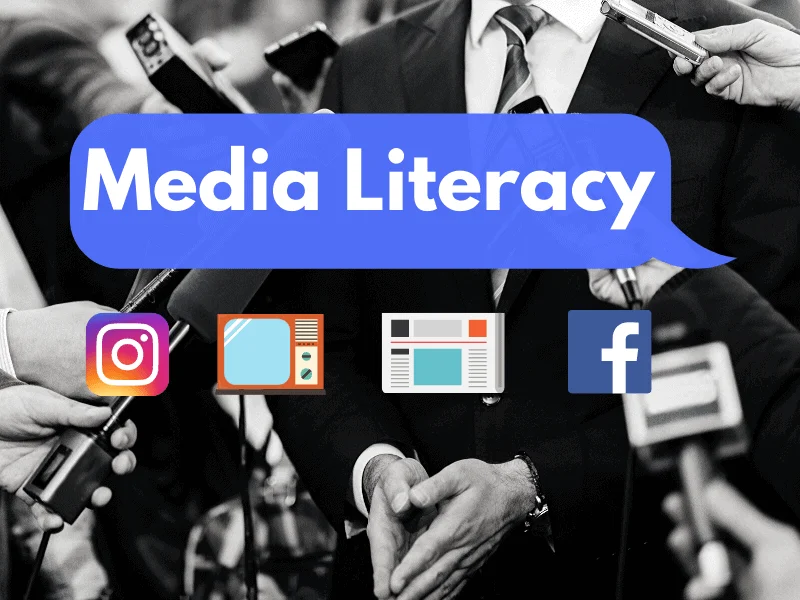In the present high speed, carefully determined world, media proficiency has arisen as a basic expertise. With the multiplication of data sources, from conventional media sources to online entertainment stages, the capacity to perceive, investigate, and assess media content has never been more fundamental. This blog investigates the significance of Media Literacy in the computerized age, featuring its part in cultivating decisive reasoning, informed citizenship, and strong social orders.
What is Media Literacy?
Media proficiency alludes to the capacity to get to, examine, assess, and make media in different structures. It incorporates a scope of abilities that permit people to decipher media messages, grasp their specific situation, and survey their validity. Media Literacy likewise includes grasping the job of media in the public eye and perceiving the procedures used to impact and convince crowds.
The Evolution of Media Literacy
The idea of Media Literacy has developed close by innovative progressions. At first centered around conventional media like papers, TV, and radio, media proficiency currently incorporates advanced media, enveloping internet based news, virtual entertainment, sites, and sight and sound substance. The computerized age has changed how we consume and connect with data, making Media Literacy more intricate and complex.
The Role of Media Literacy in Critical Thinking
Media proficiency advances decisive reasoning abilities by empowering people to address and dissect the data they experience. In a time where falsehood and pony news are wild, the capacity to basically assess sources and content is vital. Media Literacy empowers people to separate among reality and assessment, distinguish predispositions, and perceive the aims behind media messages.
Media Literacy and Digital Citizenship
In the advanced age, Media Literacy is intently attached to the idea of computerized citizenship. Advanced residents are dependable, moral, and educated clients regarding computerized innovations. Media Literacy furnishes people with the apparatuses to explore the advanced scene securely and capably, cultivating conscious and productive web-based corporations. It additionally enables people to take part in equitable cycles by furnishing them with the abilities to draw in with and figure out political and social issues.

Media Literacy in Education
Teachers assume a fundamental part in advancing media proficiency among understudies. Coordinating media proficiency into the educational program assists understudies with fostering the abilities expected to explore the advanced world. Schools can carry out Media Literacy programs that show understudies how to basically survey media content, make their own media capability, and figure out the effect of media on society. These projects upgrade understudies’ scholastic abilities as well as set them up for deep rooted learning and dynamic citizenship.
The Impact of Media Literacy on Society
Media proficiency has sweeping ramifications for society. By cultivating educated and basic shoppers regarding media, it helps fabricate a stronger connection with people. Media-proficient people are better prepared to recognize and challenge deception, misleading publicity, and manipulative substance. This, thus, advances a better open talk and fortifies majority rule establishments.
The Challenges of the Digital Age
The advanced age presents interesting difficulties for media proficiency. The sheer volume of data accessible online can be overpowering, and the speed at which data spreads can make it challenging to confirm its exactness. Moreover, the ascent of calculations and customized content feeds can make closed quarters, where people are presented exclusively to data that builds up their current convictions. These difficulties highlight the significance of Media Literacy in assisting people with exploring the intricacies of the advanced world.
Strategies for Enhancing Media Literacy
- Education and Training: Schools and instructive organizations ought to focus on media proficiency training, furnishing understudies with the abilities to fundamentally assess media content and make their own media mindfully.
- Public Awareness Campaigns:State run administrations and associations can send off open mindfulness missions to teach the more extensive public about the significance of Media Literacy and give assets to creating media proficiency abilities.
- Collaborations with Media Organizations: Joint efforts between instructive foundations and media associations can improve media proficiency programs by giving certifiable bits of knowledge and encounters.
- Promoting Critical Consumption: Empowering people to embrace basic utilization propensities, for example, cross-actually looking at sources and scrutinizing the validity of data, can assist with building media proficiency abilities.
- Supporting Independent Media:Supporting autonomous and insightful news-casting can add to a more educated and media-proficient society by giving superior grade, reliable data.
Media Literacy and Mental Health
The effect of media on emotional well-being is one more significant part of media proficiency. Over the top utilization of media, especially web-based entertainment, has been connected to issues like tension, gloom, and low confidence. Media proficiency can assist people with dealing with their media utilization, perceive unsafe substances, and search out certain and useful media encounters.
Media Literacy in the Workplace
In the work environment, media proficiency is fundamental for exploring the intricacies of the computerized economy. Representatives should have the option to fundamentally assess data, impart really, and team up utilizing advanced devices. Media proficiency abilities can improve efficiency, advancement, and navigation, making them important resources in the cutting edge work environment.
The Future of Media Literacy
As innovation keeps on developing, so too will the idea of Media Literacy. Arising innovations like man-made reasoning, computer generated experience, and the Web of Things will introduce new difficulties and open doors for Media Literacy. Remaining in front of these improvements will require continuous training and transformation, guaranteeing that people are prepared to explore the always changing media scene.
Conclusion
Media Literacy is an essential expertise in the computerized age, engaging people to explore the intricacies of the cutting edge media scene. By cultivating decisive reasoning, informed citizenship, and mindful computerized conduct, Media Literacy adds to a stronger and connected society. As we keep on wrestling with the difficulties of the computerized age, advancing Media Literacy will be fundamental for building a better, more educated, and more equitable world.
FAQs
Q1. What is media proficiency?
Media Literacy is the capacity to get to, dissect, assess, and make media in different structures. It includes figuring out the job of media in the public arena and perceiving the methods used to impact and convince crowds.
Q2. For what reason is media proficiency significant in the advanced age?
Media Literacy is significant in the advanced age since it assists people with exploring the huge measure of data accessible on the web, fundamentally assess sources, and distinguish falsehood. It additionally advances dependable computerized citizenship and improves public talk.
Q3. How might Media Literacy be shown in schools?
Media proficiency can be shown in schools through devoted programs that coordinate media examination and creation into the educational plan. Instructors can utilize true models and involved exercises to assist understudies with creating decisive reasoning and media creation abilities.
Q4. What are a few difficulties of media proficiency in the computerized age?
Difficulties of Media Literacy in the computerized age incorporate the staggering volume of data, the speed at which data spreads, and the ascent of closed quarters made by customized content feeds. These difficulties make it challenging to check the precision of data and open people to assorted viewpoints.
Q5. How does media proficiency affect psychological well-being?
Media proficiency can affect emotional wellness by assisting people with dealing with their media utilization, perceive harmful substance, and search out certain media encounters. By advancing a fair and basic way to deal with media, Media Literacy can moderate the adverse consequences of over the top media utilization on emotional well-being.


